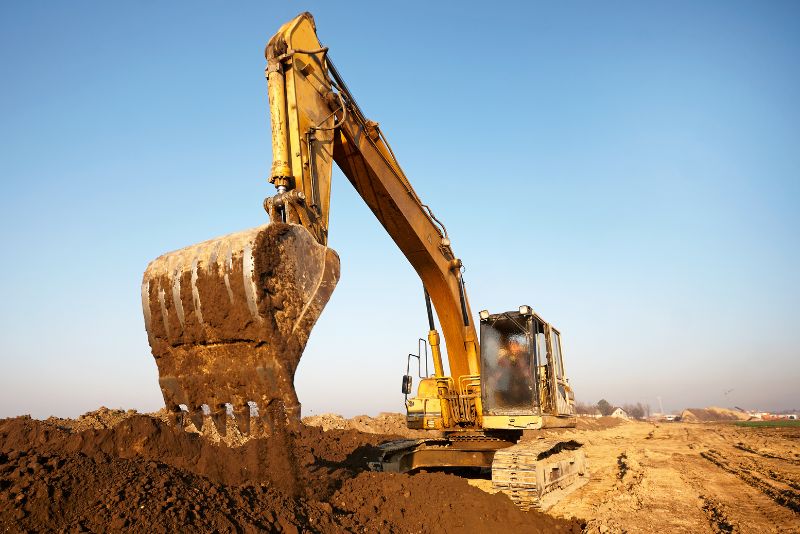Ins and Outs of Excavation - The Ultimate Guide from Hobart Experts

Get your construction project off to a successful start with our expert advice.
Are you considering excavation for your upcoming construction project but unsure where to start? Whether it's a small domestic project or something more extensive like a commercial building, knowing the ins and outs of excavation can be essential to its success. That's why we at Hobart Experts have put together the ultimate guide to help inform you on all excavation-related things. In this comprehensive resource, readers will understand best practices when working with excavators, safety considerations that should always be considered, and valuable tips from our professional experience in the field. We hope that after reading this post, you come away empowered and confident in embarking on your next venture with ease!
What is excavation, and what are its purposes
Excavation refers to the process of digging and moving soil, rock, or other materials to create a desired level of depth. This technique is utilised in various construction projects, from drilling foundations to creating roads and bridges. Excavation can also be used for mining purposes, such as extracting mineral ores or precious metals. Additionally, specific archeological sites can benefit from the use of excavation to uncover artifacts and other evidence related to past civilisations.
Excavation benefits from using heavy machinery and other specialised tools, as well as the expertise of trained professionals. The process involves proper planning to ensure safety, cost efficiency, and environmental protection. The proper excavation also requires knowledge of soil types, rock types, and potential obstacles that may be encountered during the project.
The different types of excavation tools and equipment
Excavation requires specialised tools and equipment for different tasks in the process. The most common tools include shovels, backhoes, rakes, trowels, picks, wheelbarrows, and other hand-held implements. Heavy machineries such as mini diggers, hydraulic excavators and bulldozers are used to move earth and debris efficiently.
These excavation tools and equipment are used in different conditions – from soft soil to hard rocks – depending on the type of project. For example, a backhoe is usually used for digging deep into soils and rock formations; shovels and trowels are often used to excavate shallow areas with softer substrates. You can know more on excavation and applications at excavation contractors Hobart
How to safely excavate your property
The excavation process can be dangerous if safety precautions are not taken. Before beginning any excavation project, it is vital to identify and understand all potential hazards. Ensure that the area is cleared of debris and that personnel wear the appropriate protective gear.
It is also vital to ensure the machinery used is in safe operating condition and has been properly inspected by a qualified technician. Proper safety signage should be posted to alert people in the area of any potential hazards related to the excavation process. Additionally, it is vital to test the soil and rock layers before excavating; this testing can help identify any hidden dangers, such as underground water levels or fragile structural materials.
If you are planning on doing a large-scale excavation, it is essential to have a plan in place. This plan should include an outline of the excavation process, including what type of equipment will be used and how deep into the ground you intend to dig. It would be best to protect yourself from potential dangers, such as cave-ins or flooding, by taking appropriate safety precautions.
Tips for hiring an excavation contractor
Excavation requires a professional excavation contractor due to the specialised equipment and experience necessary to ensure a successful project.
When shopping for an excavation contractor, it is crucial to research their background and past projects. Make sure the contractor is experienced in the type of excavation you have done and that they have the appropriate safety certifications. Ask to see references from previous clients to verify their quality of work. Inquire about any additional costs such as permits, labour, and equipment rental fees that may be required for your project. Finally, make sure to get at least three quotes from different excavation contractors to compare prices and services offered. By taking these steps, you will ensure a successful excavation project.
Frequently asked questions about excavation.
The following are some of the most common questions asked about excavation:
- • What is the purpose of digging a hole?
The purpose of excavating a hole is to access underground utilities or to dig for foundations for construction projects such as buildings, highways, bridges and even swimming pools.
- • Does an excavation require permits?
Yes, most local municipalities require a permit for all excavations.
- • How deep can an excavation go?
The depth of an excavation usually depends on the type of project being undertaken and the soil conditions. Generally, it is recommended to stay within 20 feet of the surface.
- • What safety precautions should be taken during an excavation?
It is vital to ensure the excavation site is marked and safe. This includes setting up guardrails and warning signs and providing proper lighting and access for heavy equipment. All personnel should also wear protective gear such as helmets, boots, gloves, and goggles in the area. Additionally, a spotter should always be present to monitor the site and keep workers safe. You can trust Excavation Hobart to adhere to safety in all your excavation projects
Contact Excavation Hobart Experts
Excavation needs a professional touch to be done correctly and safely, and Excavation Hobart has all the expertise you need from start to finish. We provide state-of-the-art equipment and an experienced team that can handle any job. We consider all aspects of the job and take safety very seriously. Our experienced operators have years of experience in excavation work, so you can trust that your job is in good hands. Contact us today for a free consultation and quote on all your excavation needs. We look forward to hearing from you!
.